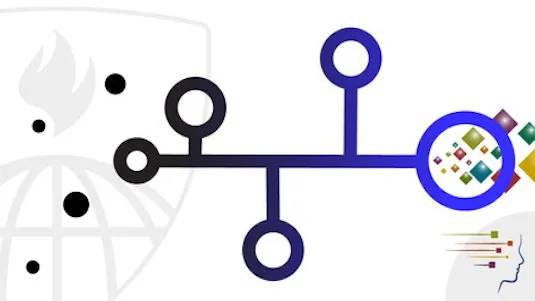
Motivating Gen Z Learners: What Parents and Teachers Need to Know 
This four-week course will help parents and teachers better understand Gen Z learners and equip them with the skills and knowledge to motivate them. Through various sessions, you'll explore practical teaching approaches, key motivational concepts, and the behaviourist approach to motivation. You'll also examine positive psychology and mindfulness as a classroom tool to make education positive and overcome generational differences. This course is perfect for those who want to engage and motivate young people. ▼
ADVERTISEMENT
Course Feature
![]() Cost:
Cost:
Free
![]() Provider:
Provider:
Futurelearn
![]() Certificate:
Certificate:
Paid Certification
![]() Language:
Language:
English
![]() Start Date:
Start Date:
Self paced
Course Overview
❗The content presented here is sourced directly from Futurelearn platform. For comprehensive course details, including enrollment information, simply click on the 'Go to class' link on our website.
Updated in [May 25th, 2023]
This four-week course provides an overview of the learning styles that suit Gen Z learners and explores the strategies to enhance motivation in them. Participants will gain an understanding of motivational theories and their application in real-life contexts. Through various sessions, they will learn different teaching approaches to increase motivation and address variables that can affect motivation to learn. Additionally, they will examine positive psychology and mindfulness as a classroom tool. By the end of the course, participants will be equipped with the skills and knowledge to better understand Gen Z and motivate them to learn.
[Applications]
Upon completion of this course, participants will have a better understanding of the learning styles that suit Gen Z and the strategies to enhance motivation in Gen Z learners. They will also have the skills and knowledge of motivational theories and their application in real-life contexts. Participants will be able to apply the knowledge gained from this course to create a positive learning environment for Gen Z learners.
[Career Paths]
Job Position Paths:
1. Education Consultant: Education consultants help schools, universities, and other educational institutions develop and implement effective strategies for teaching and learning. They use their knowledge of educational trends and best practices to advise on curriculum design, assessment, and other areas of educational improvement. As the educational landscape continues to evolve, the demand for education consultants is expected to grow.
2. Instructional Designer: Instructional designers create educational materials and programs for students of all ages. They use their knowledge of instructional design principles and technology to create engaging and effective learning experiences. With the rise of online learning, instructional designers are in high demand as they help create and maintain digital learning materials.
3. Educational Technology Specialist: Educational technology specialists help schools and other educational institutions integrate technology into their teaching and learning processes. They use their knowledge of educational technology to develop and implement strategies for using technology to improve student learning outcomes. As technology continues to become more prevalent in the classroom, the demand for educational technology specialists is expected to increase.
4. Learning and Development Manager: Learning and development managers are responsible for designing and implementing learning and development programs for organizations. They use their knowledge of adult learning principles and instructional design to create effective learning experiences for employees. As organizations continue to invest in employee development, the demand for learning and development managers is expected to grow.
[Education Paths]
Recommended Degree Paths:
1. Bachelor of Education: This degree provides students with the knowledge and skills to become a qualified teacher. It covers topics such as curriculum design, classroom management, and educational psychology. It also provides students with the opportunity to specialize in a particular area, such as special education or early childhood education. The Bachelor of Education is an increasingly popular degree choice for those looking to work with Gen Z learners, as it provides the necessary skills and knowledge to effectively engage and motivate them.
2. Master of Educational Psychology: This degree provides students with an in-depth understanding of the psychological principles that underpin learning and teaching. It covers topics such as motivation, cognition, and learning styles. It also provides students with the opportunity to specialize in a particular area, such as educational technology or educational assessment. This degree is ideal for those looking to work with Gen Z learners, as it provides the necessary skills and knowledge to understand their learning styles and develop strategies to motivate them.
3. Doctor of Education: This degree provides students with an advanced understanding of educational theory and practice. It covers topics such as curriculum design, educational leadership, and educational research. It also provides students with the opportunity to specialize in a particular area, such as educational technology or educational assessment. This degree is ideal for those looking to work with Gen Z learners, as it provides the necessary skills and knowledge to understand their learning styles and develop strategies to motivate them.
Developing Trends:
1. Technology-Enhanced Learning: Technology-enhanced learning is becoming increasingly popular in the education sector, as it provides students with the opportunity to learn in a more engaging and interactive way. This is particularly beneficial for Gen Z learners, as they are used to using technology in their everyday lives.
2. Personalized Learning: Personalized learning is becoming increasingly popular in the education sector, as it allows students to learn at their own pace and in their own way. This is particularly beneficial for Gen Z learners, as it allows them to learn in a way that is tailored to their individual needs and interests.
3. Social-Emotional Learning: Social-emotional learning is becoming increasingly popular in the education sector, as it provides students with the opportunity to develop their social and emotional skills. This is particularly beneficial for Gen Z learners, as it allows them to develop the skills they need to be successful in their future lives.
Course Provider

Provider Futurelearn's Stats at AZClass
Discussion and Reviews
0.0 (Based on 0 reviews)
Explore Similar Online Courses

Getting and Cleaning Data

How to Make an Animated Movie

Python for Informatics: Exploring Information

Social Network Analysis

Introduction to Systematic Review and Meta-Analysis

The Analytics Edge

DCO042 - Python For Informatics

Causal Diagrams: Draw Your Assumptions Before Your Conclusions

Whole genome sequencing of bacterial genomes - tools and applications

Childrens perspectives on play

Child Development & Pedagogy

Kids with Cancer Still Need School: The Providers Role
 Related Categories
Related Categories
 Popular Providers
Popular Providers
 Popular Searches
Popular Searches
Quiz
 Submitted Sucessfully
Submitted Sucessfully
1. What age group is the course targeted at?
2. What is the main focus of the course?
3. What is the behaviourist approach to motivation?
4. What age group is this course targeted at?
Correct Answer: 9 to 22 years old


Start your review of Motivating Gen Z Learners: What Parents and Teachers Need to Know